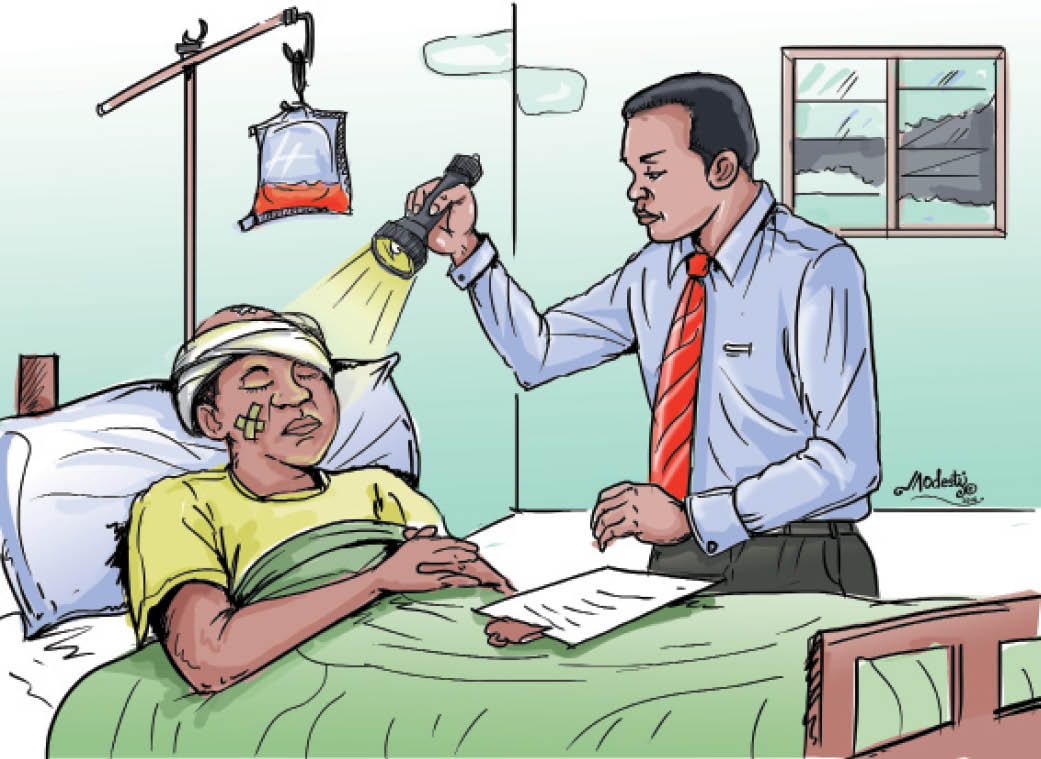Traditional beliefs about health persist in the Borno State of Nigeria, despite the presence of modern healthcare facilities. Many residents choose to rely on traditional medicine, believing that it is more effective than Western medicine. This clash of beliefs can lead to poor health outcomes for many people in the region.
According to studies, a significant proportion of the population in Borno State, especially in rural areas, still relies on traditional healers for health care. The use of traditional medicine is deeply rooted in the culture and beliefs of the people, and many believe that it is more effective than modern medicine. It’s difficult to say exactly what percentage of the population relies on traditional beliefs, but it’s clear that it’s a significant factor in the healthcare crisis in the region. While modern medicine offers life-saving treatments for many conditions, traditional beliefs about health and illness persist in the state. This can lead to a conflict between the two approaches, causing people to forgo modern medical care and putting their health at risk.
The belief in jinns and spirits also have a significant impact on healthcare in the state. People may believe that their illness is caused by possession by a jinn or spirit, and they may seek out traditional healers who use rituals and amulets to treat them, instead of seeking modern medical care. This can lead to people not getting the medical treatment they need, and in some cases, it can even lead to people dying from illnesses that could have been treated by a doctor. This can lead to different implications that will make people start avoiding or delaying modern medical care, as they may believe that traditional medicine is more effective.
Secondly, it can lead to the spread of diseases, as some traditional practices, such as bloodletting, can actually cause harm and spread infection. Finally, it can lead to financial hardship, as people may spend their limited resources on ineffective treatments rather than seeking modern medical care.
- Nigeria’s challenges worsened by collapse of family unit – Lagos dep gov
- Why labour market isn’t favourable to senior citizens’
The medical care procedure and hospital administration system in Borno State certainly contribute to people avoiding hospitals and seeking treatment from traditional healers instead. The high cost of medical care and the lack of pity from hospital administrators can make it difficult for people to afford the care they need, especially in emergency situations. The lack of pity from hospital administrators can manifest in several ways in emergency situations. For example, patients may be required to pay upfront for treatment, even if they cannot afford it. In some cases, patients may be turned away from the hospital if they cannot pay upfront, even if they are experiencing a life-threatening emergency. Additionally, hospital staff may be insensitive to the needs of patients and their families, and may not provide the level of emotional support that is needed in a time of crisis. Moreover, the long wait times and bureaucracy associated with the system can be frustrating and discouraging for people who are seeking medical care.
There are a few possible solutions that could help to improve this situation. First, more education and awareness about the benefits of modern medical care is needed. This can be done through public health campaigns and community outreach programmes. Second, making medical care more affordable and accessible is important. This can be done through government subsidies, insurance programmes, and improved infrastructure. Third, improving the training and regulation of traditional healers can help to ensure that they provide safe and effective care. Finally, the solution to the issues with the medical care procedure is to reform the way that hospitals bill patients.
Currently, hospitals often require patients to pay up front before they receive treatment, even in emergency situations. This can be a significant financial burden, and it can deter people from seeking medical care when they need it. A better solution would be for hospitals to bill patients after they receive treatment, with the cost based on their income and ability to pay. This would ensure that people have access to the medical care they need without worrying about the cost.
Fadeela Mustapha Lawan, Department of Mass Communication, Borno State University

 Join Daily Trust WhatsApp Community For Quick Access To News and Happenings Around You.
Join Daily Trust WhatsApp Community For Quick Access To News and Happenings Around You.


